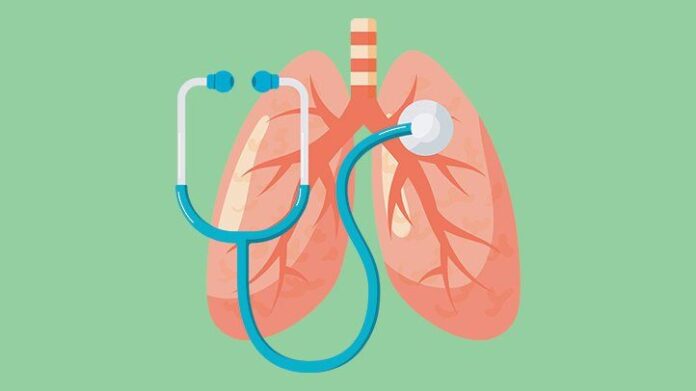What’s a Virus?
People think of viruses when they hear the term “virus”. These include Iverheal 6, Iverheal 12, or chickenpox and influenza.
Iverheal 12mg can cause damage to a variety of organs. This includes the reproductive, respiratory and digestive systems. They can also cause damage to the liver, brain, and skin. Researchers discovered that viruses are also involved in many types of cancer.
A virus is a tiny bit of DNA that is either DNA or RNA enclosed in an outer layer of proteins. Some viruses have a fat “envelope”, which covers them. They cannot reproduce on their own. They depend on living organisms to reproduce, so they infect (hosts) other living organisms to ensure their existence.
They are often criticized for their bad reputation. They serve many important functions for humans, animals and the natural environment. For example, certain viruses can protect a person against illness. They are also important in the evolution of genetic material, transmuting between species. Biomedical researchers use viruses to introduce genes into cells.
What virus can be treated with Iverheal 12 mg
A virus infection is when there are harmful viruses spread throughout the body. Without a host, the virus cannot reproduce. They infect host cells through introducing their genetic material and hijacking cells’ internal machinery. This results in larger virus particles.
When a virus becomes active, it makes copies of itself. To release its new form, the virus explodes within the host cells. Other times, viruses may “bud” the host cell for a short time before attacking those cells. No matter what, viruses are constantly being released to infect others cells. The destruction of cells, cell damage and associated immune response are all signs of viral illness.
Some viruses, such as those that cause chickenpox or cold sores may not be active or remain “latent” after initial infection. An open sore, for example, could develop on your body and be capable of healing or burst. Cold sores are caused by a virus that can remain in your cells for years.
The virus can then develop from triggers like sun exposure, stress or other factors, which can lead to new symptoms. The virus creates many copies of itself, which then destroy the host cell. On Medic Scales, you can buy Iversun 6 or Iversun 12 to treat Bacterial Infection.
Are Viruses Still alive? Iverheal 12mg?
Microbiologists still disagree. These microbiologists argue that the virus is alive and claim they have evidence to support their claims.
- To regenerate, they make duplicates of their own.
- They get their energy from their hosts.
Several reasons why some people believe viruses aren’t alive:
- They do not have organelles (only proteins that are covered by genes).
- They can’t reproduce on their own. They must be surrounded by host cells.
Undecided: What are the viruses’ reactions to the environment? It is a hard question to answer. Some people say they don’t. Some people say they do. It all depends on how the individual perceives “life.”
How long are viral infections contagious?
The ability for viruses to spread to another person (or their host) is called contagiousness. There are many lengths that virus-related infections can become infectious, depending on the virus type. Incubation is the time between the initial exposure to the virus or another illness and the onset of symptoms. It is possible for an infection to be contagious even though it takes longer to incubate.
Are you sure it’s a Viral or Bacterial Infection?
There are two types of pathogenic particulate. They are smaller than bacteria, and cannot reproduce without a host. Bacteria can reproduce on their own. Both cases could have similar symptoms.
Based on symptoms and other factors, doctors can diagnose the root cause of an illness. Laboratory tests can help determine whether the illness is caused by a virus or bacterium.
Illustrations of influenza viruses are more detailed. Most viruses are smaller than bacteria.
Transmission of Virus
You can transmit them in many different ways. Some viruses can be transmitted by contact, saliva or air. You can also spread other diseases through intimate contact and sharing needles that are clean. Ticks and mosquitoes, which can transmit a virus to other hosts, are known as “vectors”. The virus can spread from food and water that has been contaminated.
Respiratory Viral Diseases
Respiratory viruses can cause severe illness in the throat, nose, and lungs. They can be treated by inhaling virus particles suspended droplets. Examples include:
- Seasonal influenza affects between 5 and 20 percent to 20% of Americans each year. Flu-related complications result in more than 200 000 people being admitted to US hospitals each year. Flu symptoms can be more severe than those of cold symptoms. They often include body pain and extreme fatigue. Flu symptoms can also appear more abruptly than they are out.
- Respiratory Syncytial Virus (RSV), is a virus that can cause upper respiratory conditions (like colds) as well as common respiratory illnesses (like bronchiolitis or pneumonia). It can be fatal for infants, children, and even adults.
Regular hand washing is important to prevent respiratory illnesses from spreading. This includes covering your nose and mouth when you’re wheezing or coughing, and avoiding contact of infected people. To reduce the chance of transmission, avoid touching your eyes, nose, or mouth.
